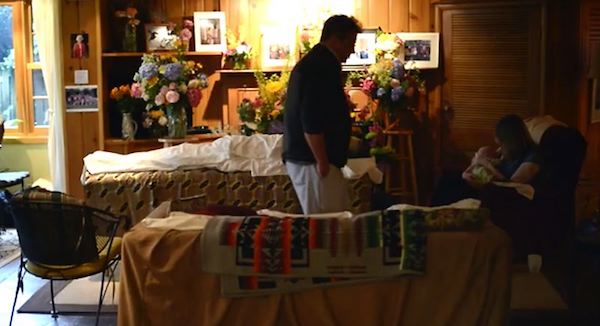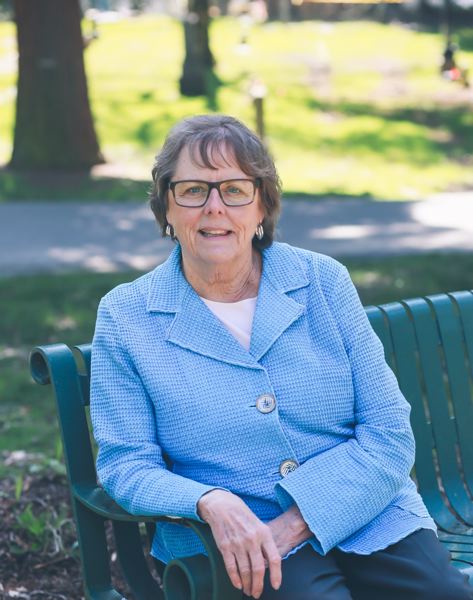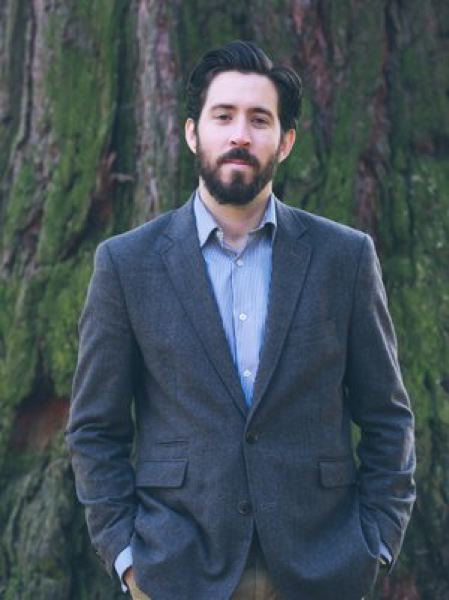Death doulas offer education, support to those seeking alternative options while dying or grieving

By Courtney Vaughn
[W]hen both of her parents died six weeks apart, Nancy Ward had to confront death in a profound way.
She was lucky, sort of. Her parents had prearranged for their care after their deaths, but Ward recalls being uneasy with the post-mortem process when her father died of congestive heart failure.
“Up until this point, I had never seen a dead body because I was about as death-phobic as they come,” Ward says. “A man came into the room, he looked about 14, and unrolled a black plastic body bag on the gurney. I’m going, ‘Oh my God. This man was just living and breathing and now you’re gonna put him in a black plastic bag and do what?’ Put him out on the curb for waste management to pick up?”
Ward succinctly recalls the emotional sterility of the situation.

“This doesn’t feel right, this doesn’t feel good, it doesn’t feel loving, or respectful,” she thought to herself. “He doesn’t know my father. I know my father.”
Six weeks later, her mother died.
“I knew what was coming and didn’t like it, but I had nothing to replace it with,” Ward says.
Afterward, she became a death midwife, or “death doula” as some call it, availing herself to others so they didn’t have to go through the same process she did with her parents.
Ward is now used to confronting death. In fact, she and others have made a living out of it.
A few years ago, Ward and other colleagues in the death directives industry teamed up to form the End of Life Care Collaborative. Members help educate and guide people in their quest for home funerals and other self-directed death practices.
The group focuses on serving those who are dealing with the death of a loved one, or preparing for their own death.
Services range from home funeral preparation and arrangements, to help with navigating the traditional funeral process, to emotional and practical support for those delving into the end of their own lives, and a gamut of other services to serve those confronting death.
The ultimate goal, members say, is to help people achieve greater meaning, or a more comfortable process around dealing with death and accepting loss. To get there, clients must be willing to shake off some of the cultural stigma of death.
“As a society, we aren’t comfortable with dealing with death because it reminds us of our own mortality,” Ward says. “We think everybody should know what their options are and right now, they don’t. We’re trying to reach the people who want it done differently but don’t know what different looks like.”
Ward and the collaborative team help educate people on what their options are for preserving a loved one at home after they’ve died, or bringing the body of a loved one home if they choose.
Ward says most members of the collaborative try to operate on a sliding-scale fee system, to make sure no one is turned away because of finances.
“We all have different areas we like to focus on and that’s what makes the collaborative so important,” she says. “We can do everything from the totally esoteric to the toally practical.”
That means being a listener and helpful guide, or doing a load of laundry or providing a meal for a grieving household.
She points to a recent client she worked with- a woman dying of cancer- who wanted to be prepared when her final moments came, but more importantly, wanted to rely less on her family for her physical and emotional needs.
“She said, ‘my family is having a really hard time with this …I don’t want to burden them with my own questions and expressions, this is what I need you for,'” Ward recalls.
“Their psychological and emotional needs are unmet,” Ward says of many terminally ill patients. “My involvement is just simply working with the person on a psychological, spiritual, emotional level.”
Members of the collaborative are not isolated in their quest to provide resources and support for death directives, but their services aren’t widely available, or even widely culturally accepted.

“I have seen a good deal of anxiety arise from family members who are trying, in the midst of disorienting grief, to figure out what their loved ones, who had not planned logistically or financially for the events that would follow their death, would have wanted,'” Asher Wallis, an End of Life Care Collaborative member and grief counselor, explains.
He attributes some of the sources of that unnecessary stress to “culturally sanctioned misinformation about the physiological and psychological nature of dying such that both the family caregivers and the dying person think they are doing it wrong.”
Deborah Threadgill, a collaborative member who is also a certified funeral director, says the End of Life Care Collaborative focuses on making “everything family-directed,” meaning they never suggest or push services on clients. Rather, they try to educate them on their full range of options surrounding death and dying.
“We take something that is very, very traumatic in our society and taboo and make it something natural and beautiful,” she says.
Complete Article HERE!
